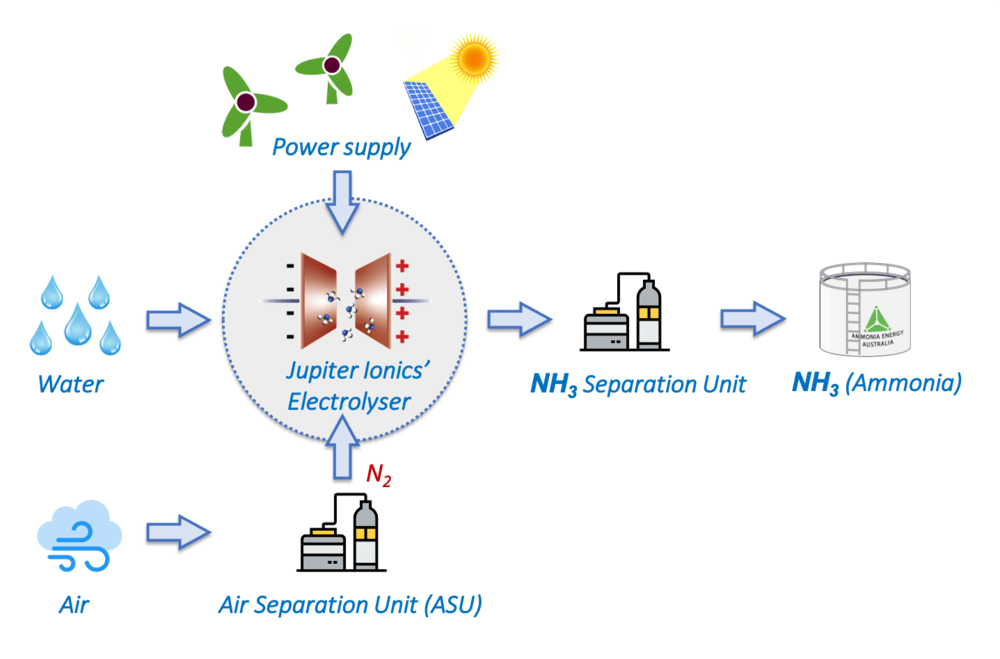With prices rising to all-time highs and growing awareness about its environmental footprint following COP26, fertilizer has been in the news lately like never before.
A variety of startups are working on next-generation technologies that enable more efficient and more environmentally friendly fertilizer use – from microbial solutions that ‘create’ biofertilizer in the soil, to AI-powered machinery that is more selective in applying existing products to the field.
Melbourne-based Jupiter Ionics is taking another approach: it’s aiming to use its “electrochemical” process to manufacture smaller amounts of ammonia, a key fertilizer ingredient, on-site or closer to the farm. This way, it believes it can reduce agriculture’s reliance on the industrial-scale production of ammonia and the harms it can do to the environment – while reducing the possibility for future supply chain shocks at the same time.
Australian agrifoodtech VC Tenacious Ventures has been convinced by Jupiter Ionics’ pitch; last week, it led the Monash University spin-out’s A$2.5 million ($1.76 million) seed round alongside several angel investors.
“There are two main problems you can think solving: one is the energy intensity of the end-to-end process, and the second is the point-of-use,” Tenacious Ventures partner Matthew Pryor tells AFN. “Because [industrial production] is centralized, [ammonia] has to be a commodity product – whereas, if you can produce it on-demand locally, you can tailor it. That’s the appeal of this approach.”
According to Pryor, Jupiter Ionics uses a nitrogen reduction reaction (NRR) which can produce smaller amounts of ammonia in a potentially much more energy-efficient manner than industrial implementation of the Haber-Bosch process, which emits around 2 tons of carbon dioxide for every 1 ton of ammonia it produces.
Jupiter Ionics’ NRR tech requires only water, air, and electricity as inputs – offering the potential for ‘net-zero’ ammonia production.
“One of the things about Haber-Bosch is its high temperature and high pressure. If you can move away from that to NRR [the process requires] much more modest temperatures and pressure, it can be run at batch, and using amenable forms of renewable power like solar and wind,” he explains.
“It also means you don’t need storage. When you compare different pathways to green ammonia, one is by retrofitting existing Haber-Bosch infrastructure; but that still requires a significant amount of storage. The direct nature of this electrochemical process has several advantages in [its] scalability and ability to operate intermittently, when and if required.”
After closing $27 million maiden fund, Tenacious Ventures seeks to scale-up Aussie agrifoodtech – read more here
Jupiter Ionics will use the seed funds to continue R&D around the technology — which it has exclusively licensed from Monash University — and to push ahead with its commercialization.
“The current global market for ammonia, which is mostly used in fertilizer production, is worth around $70 bilion. However, proposed new uses for green ammonia as a shipping fuel and a form of energy storage mean it could be many multiples of that in the future,” Jupiter Ionics CEO Charlie Day said in a statement.
“This investment will enable us to fast-track our development program so we are well positioned to meet the burgeoning demand.”





